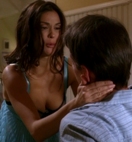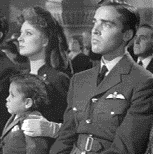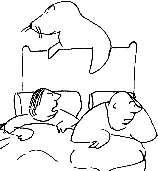This Shows the Sound We Want Our Phone to Make
 Tuesday, November 15, 2005 at 05:44PM
Tuesday, November 15, 2005 at 05:44PM  Quote: "Anytime you’re around me, please don't turn off your cell phone. You hear an annoying sound. I hear ka-ching! ka-ching!" Virginia governor and telecom jillionaire Mark Warner, quoted in Time.
Quote: "Anytime you’re around me, please don't turn off your cell phone. You hear an annoying sound. I hear ka-ching! ka-ching!" Virginia governor and telecom jillionaire Mark Warner, quoted in Time.
Figure of Speech: onomatopoeia (onna motta PEE ah), the noisemaker.
Warner is sniffing a run for President, but to prove he's just a regular guy, he uses an onomatopoeia -- Greek for "the making of words." The figure takes a sound and turns it into a word. Although it's one of the hardest figures to pronounce, it's also one of the best known. Figaro employs it in an argument a fortiori whenever somebody whines about how hard figures are to learn.
We only wish that flipping the bird made a sound. Then we could offer Mr. Warner another onomatopoeia.
Snappy Answer: "My favorite onomatopoeia is 'Pow!' Come here and listen..."






